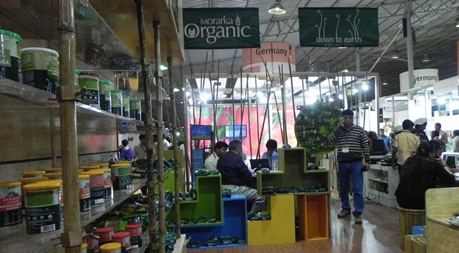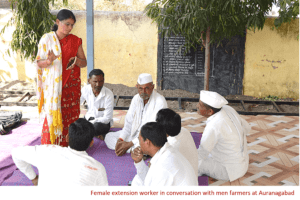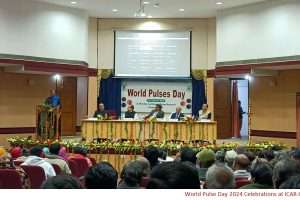Demand for organic food is increasing at 20-22% per annum in India. Its time India invests in organic research and education to develop specialized human resources trained to further the organic movement in the country, argues Sabyasachi Roy
 Sabyasachi Roy works as Manager at the National Dairy Development Board (NDDB), Koramangala, Bangalore and is a founder member, Campaign for Organiculture, Research and Extension – CORE initiative (sabyaroy@gmail.com). The views and opinions expressed in this note are of the author alone and not of the organization he represents.
Sabyasachi Roy works as Manager at the National Dairy Development Board (NDDB), Koramangala, Bangalore and is a founder member, Campaign for Organiculture, Research and Extension – CORE initiative (sabyaroy@gmail.com). The views and opinions expressed in this note are of the author alone and not of the organization he represents.





We often use the term Demand Driven to emphasize what is required to be done to meet the demand. This blog has very rightly justified why it is important for India to establish an INDIAN INSTITUTE OF ORGANIC AGRICULTURE (or Indian Institute for Organic Agriculture Research) as it is demand driven In fact, National Centre for Organic Farming (NCOF) is already there, but its mandate is mainly developmental like trainings & demonstrations and much needed but lacking component is research- which this institute can fulfill. In order to make organic agriculture sustainable & more profitable for farmers and healthy products available to consumers in sufficient quantities, we need to do more research in organic systems, where there is clear gap. May be in 12th Plan itself, government would consider making provision for such an institute! Congratulations! Sabyasachi, for making an excellent case for an Institute on Organic Agriculture under ICAR
do not think that there is a need for an exclusive Indian Institute of Organic Agriculture. We do have more than 30 State Agricultural Universities and several ICAR institutes. They could have divisions / institutes for Organic Agriculture research and development. We should not create too many fragmentation in Agricultural Research like creating separate horticulture universities, forestry universities, animal science universities, etc. AGRICULTURE encompasses everything. Hence, we should understand the real meaning of an UNIVERSITY.
I agree with Dr Ramasway`s comments. As already said, we have a plethora of institutions. They need to be revisited and duplication among them and redundancy need to be removed. In stead of establishing new institutions, the existing ones should be streamlined and their quality and efficiency should be enhanced.
Instead of further segmenting the system into niche areas, what we need to meet the challenges of years to come, is an overarching systems perspective. Our challenges are shared and universal now more than ever. Need to promote interdisciplinary thinking and if possible consolidate by merging institutes (which increases efficiency and effectiveness, as Dr. Nigam alluded too) than create exclusivity.